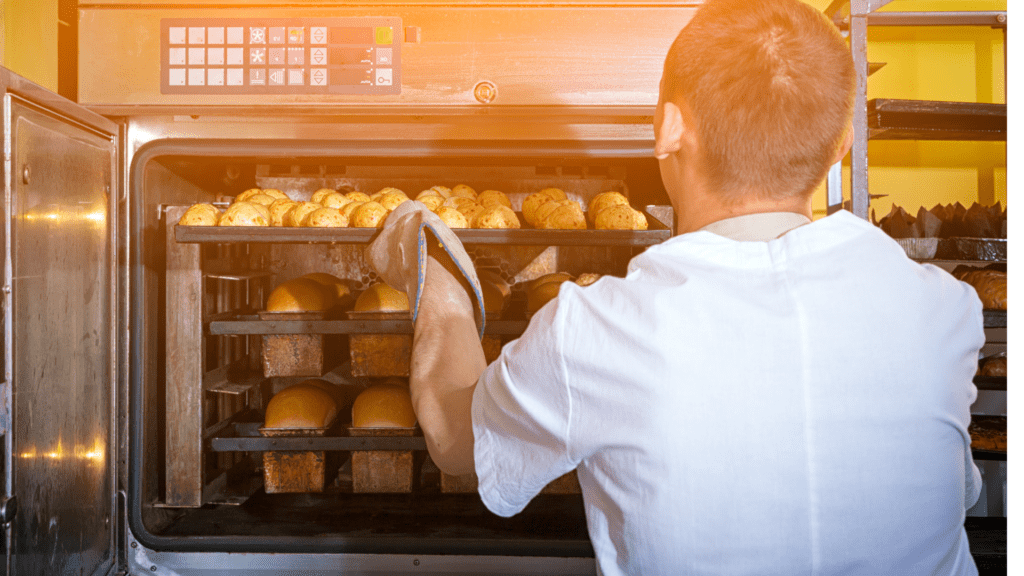Baker’s Business Blueprint: Tips for Building a Flourishing Bakery
For many bakers, the dream of opening their own bakery is one that they have had for years. However, starting a bakery from scratch can be a daunting task. From finding the right location to hiring staff and creating a menu, there are many factors to consider when building a successful bakery business.
Fortunately, there are some tried and true tips that bakers can follow to help ensure that their bakery is a success. In this article, we will explore some of the key elements of building a flourishing bakery, including location, branding, and menu development. Whether you are just starting out or looking to take your bakery to the next level, these tips can help you create a bakery that customers will love.
Crafting Your Bakery Concept
When starting a bakery, it is important to have a clear understanding of your bakery concept. This includes identifying your niche and creating a unique selling proposition that sets your bakery apart from competitors.
Identifying Your Niche
To identify your niche, consider the products you want to offer, your target audience, and the location of your bakery. For example, you may want to specialize in gluten-free or vegan baked goods, focus on artisan breads, or cater to a specific cultural cuisine.
It is important to research the demand for your niche in your area and ensure it aligns with your target audience. This can be done through market research and analyzing the competition.
Creating a Unique Selling Proposition
Once you have identified your niche, it is important to create a unique selling proposition (USP) that sets your bakery apart from competitors. Your USP should be a clear and concise statement that communicates the benefits of your bakery to customers.
To create a strong USP, consider the following:
- What makes your bakery unique?
- What are the benefits of your products?
- How do you solve a problem or meet a need for your target audience?
Your USP should be prominently displayed on your website, social media, and marketing materials to communicate your bakery’s value to customers.
Crafting a clear and compelling bakery concept is key to building a flourishing bakery. By identifying your niche and creating a unique selling proposition, you can differentiate your bakery and attract loyal customers.
Business Planning and Management
Developing a Business Plan
When starting a bakery, it is important to have a well-thought-out business plan. This plan should outline the bakery’s goals, target market, products and services, marketing strategies, and financial projections. A business plan serves as a roadmap for the bakery’s success and helps to secure funding from investors or lenders.
Understanding Bakery Economics
Bakery economics involves understanding the costs and profits associated with running a bakery. It is important to consider factors such as ingredient costs, labor costs, overhead expenses, and pricing strategies when determining the profitability of the bakery. By analyzing the bakery’s economics, owners can make informed decisions about pricing, menu offerings, and staffing.
Navigating Food Regulations
Bakeries must comply with various food regulations set by local, state, and federal agencies. These regulations cover areas such as food safety, labeling, and packaging. It is important for bakery owners to stay up-to-date on these regulations to ensure compliance and avoid costly fines or legal issues.
In summary, developing a solid business plan, understanding bakery economics, and navigating food regulations are all crucial components of successful bakery management. By being knowledgeable and proactive in these areas, bakery owners can lay the foundation for a thriving business.
Marketing Strategies
Building a Brand Identity
One of the most important aspects of marketing a bakery is building a strong brand identity. A bakery’s brand should be unique and memorable, and should communicate the quality of the products and the overall experience of the bakery. A strong brand identity can help a bakery stand out in a crowded marketplace and attract new customers.
To build a strong brand identity, a bakery should start by defining its values and mission. This can help guide the development of the brand’s visual identity, such as the logo, color scheme, and typography. A bakery should also consider the customer experience, from the design of the store to the packaging of the products.
Effective Online Marketing
In today’s digital age, online marketing is essential for any business, including bakeries. A bakery can use a variety of online marketing strategies to reach new customers and build brand awareness. Some effective strategies include:
- Social media marketing: A bakery can use social media platforms like Facebook, Instagram, and Twitter to showcase its products and engage with customers.
- Email marketing: A bakery can use email marketing to promote special offers, new products, and events to its customers.
- Search engine optimization (SEO): A bakery can optimize its website to rank higher in search engine results, making it easier for customers to find.
Community Engagement and Networking
Building relationships with the local community can be a powerful marketing strategy for a bakery. A bakery can participate in local events, sponsor community organizations, and donate products to charity auctions. By building a strong presence in the community, a bakery can attract new customers and build brand loyalty.
Networking is also important for a bakery. A bakery owner can attend local business events and connect with other business owners in the community. This can help create opportunities for collaboration and cross-promotion.
Operations and Growth
Sourcing Quality Ingredients
One of the most important factors for a successful bakery is sourcing quality ingredients. Customers can taste the difference between fresh, high-quality ingredients and stale, low-quality ingredients. Therefore, it’s crucial to find reliable suppliers who can provide fresh and high-quality ingredients consistently.
Bakers should also consider using organic or locally sourced ingredients. This not only ensures that the ingredients are fresh and of high quality, but it also supports local farmers and businesses.
Efficient Bakery Layout and Design
The bakery layout and design should be efficient to optimize workflow and increase productivity. The bakery should be designed in a way that allows for easy movement of staff, equipment, and ingredients.
Bakers should also consider the placement of equipment and ingredients to reduce the time and effort required to prepare products. For example, placing frequently used ingredients and equipment in close proximity to each other can save time and increase efficiency.
Hiring and Training Staff
Hiring and training staff is crucial for any business, and a bakery is no exception. Bakers should hire staff who are passionate about baking and have experience in the industry.
Training should be provided to ensure that staff members are familiar with the bakery’s products, equipment, and procedures. This not only ensures that the bakery maintains consistency in its products but also helps to build a positive reputation for the business.
Expanding Your Business
Expanding a bakery business can be a challenging but rewarding process. Bakers should consider expanding their business by opening new locations or offering new products.
Before expanding, bakers should conduct market research to ensure that there is a demand for their products in the new location or for the new product. They should also consider the cost of expansion and whether it’s feasible for the business.
Overall, by sourcing quality ingredients, designing an efficient bakery layout, hiring and training staff, and considering expansion opportunities, bakers can build a flourishing bakery business.


